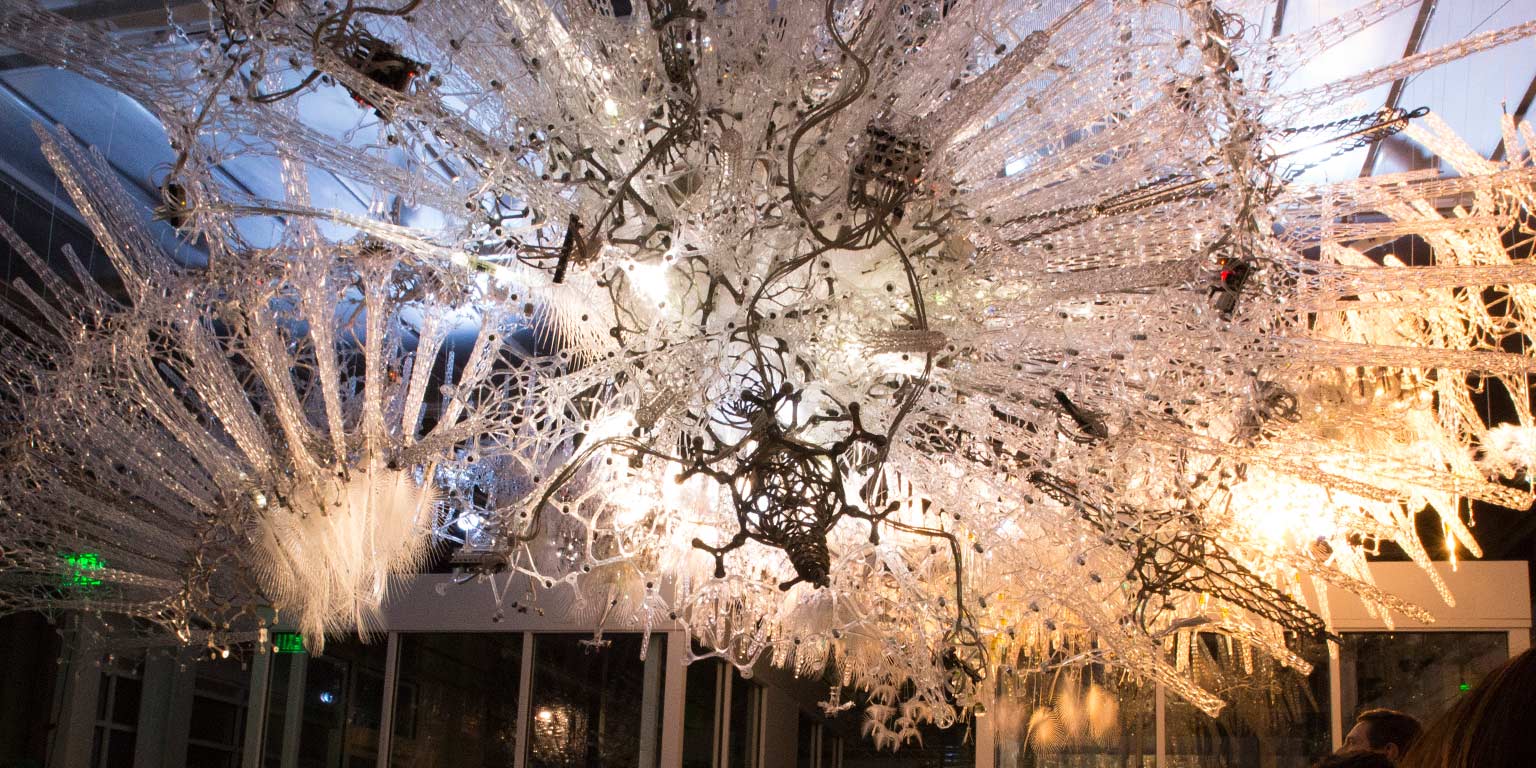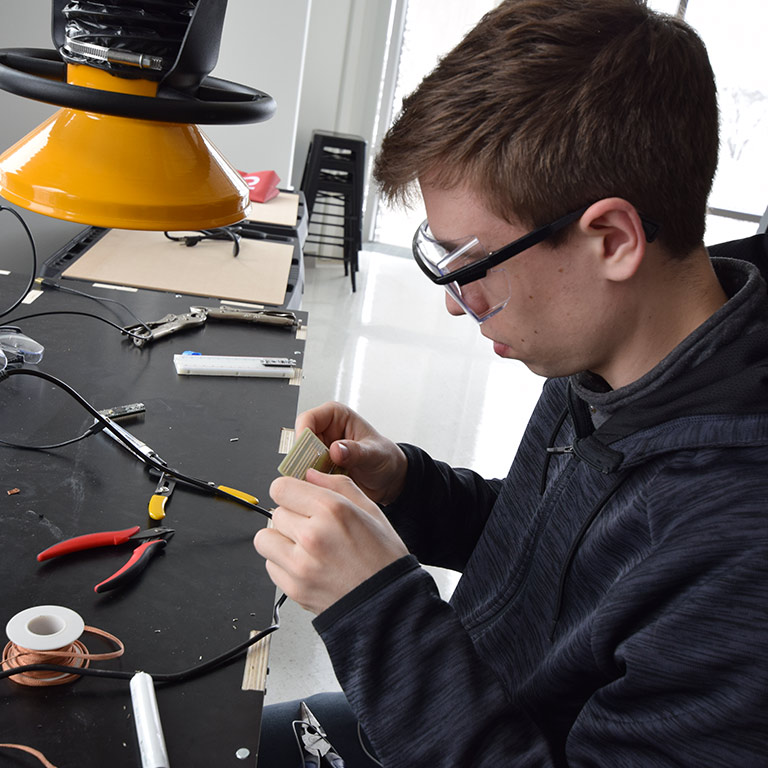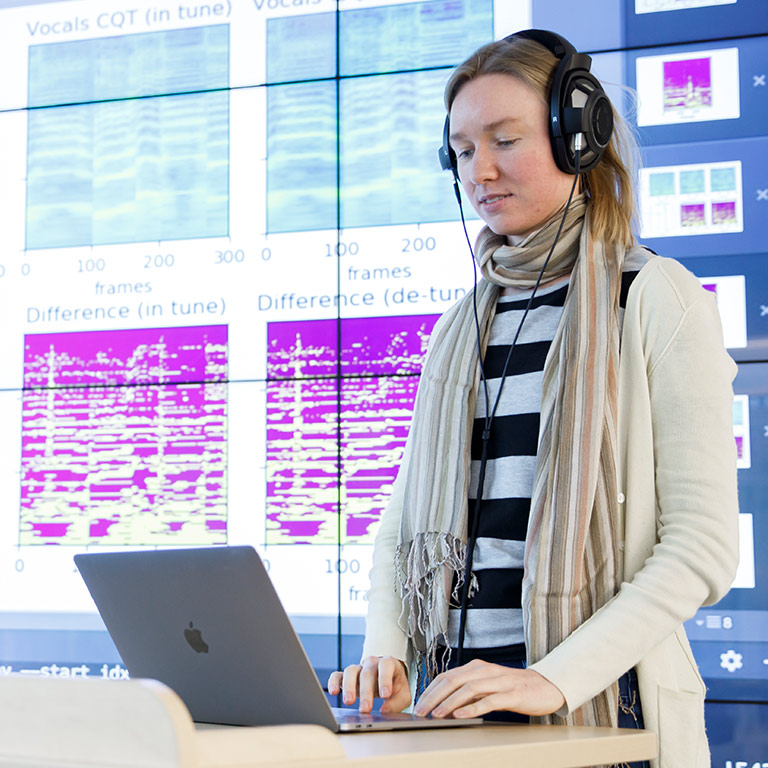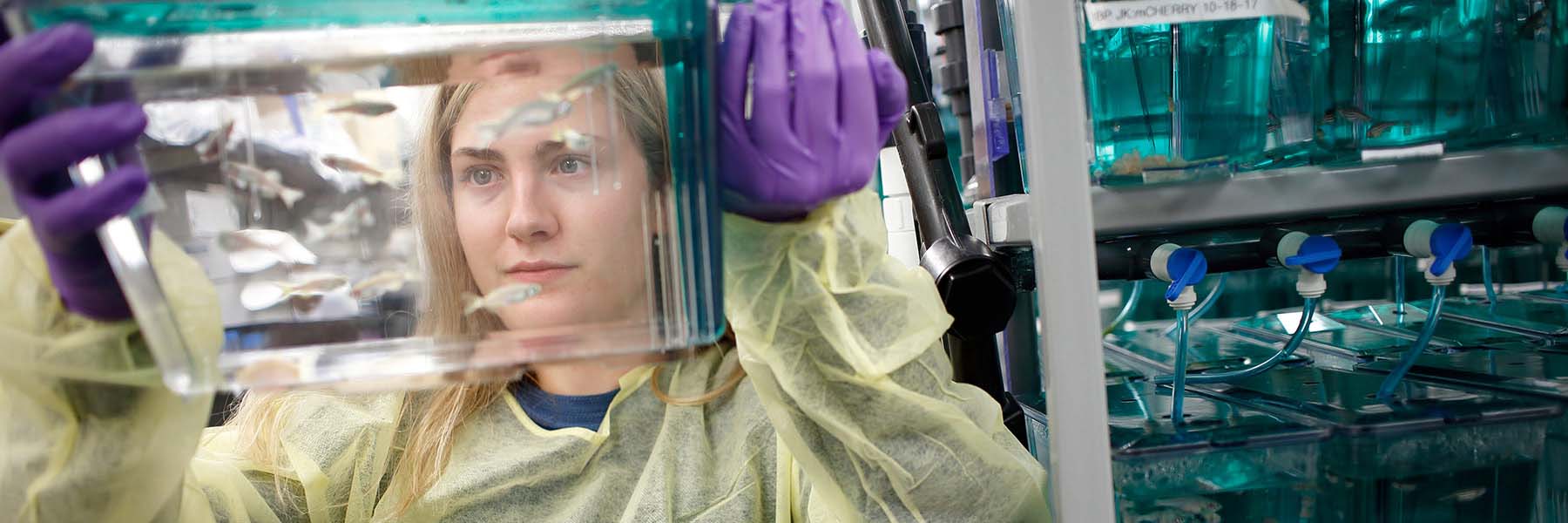Intelligent systems engineering is very broad, ranging from large systems of integrated sensors to nanotechnology. Our faculty members are producing groundbreaking work in many of these areas—and using engineering in ways it’s never been used before.
Research areas
Bioengineering
This broad field combines scientific knowledge in the life sciences, computing, and engineering practices to solve problems spanning biology, medicine, environmental remediation, and more. Bioengineering builds on existing IU Bloomington strengths to train the next generation of computing-driven bioengineers.
See faculty in bioengineeringComputer engineering
Computer engineering includes everything from building more efficient networks to making computer hardware smaller and faster to creating software that will better use the resources at its disposal. Within CE, students can mix and match courses to tailor the program toward building big data or deep learning analysis systems, creating high performance computing systems, or engineering specialized computing devices.
See faculty in computer engineeringCyber-physical systems
This field focuses on systems that interact with the physical world. CPS encompasses the entire system—including high-level software—and it often emphasizes small or embedded devices. This includes robotics and sensor-rich environments such as smart homes, smart cars, and smart cities. In all of these cases, the intelligence comes from computing devices.
See faculty in cyber-physical systemsEnvironmental engineering
Environmental engineers use the principles of biology, chemistry, engineering, and technology to solve problems facing the environment. Studying climate change, tackling pollutants, predicting environmental outcomes, developing drones to measure 3D concentration gradients and fluxes, and studying applied microbiology and aquatic chemistry are just some of the ways you can make an impact on a global scale in this exciting field.
See faculty in environmental engineeringIntelligent systems
Faculty and students in intelligent systems push the limits of artificial intelligence and machine learning performance, and engineer the cutting-edge systems in which this intelligence is efficiently embedded. Our people in this field team up with colleagues across disciplines to build customized intellects for engineering applications that understand and react to events in the human body, changes in our environment, the dynamics of molecules, and various sensor signals.
See faculty in intelligent systemsMolecular and nanoscale engineering
Molecular and nanoscale engineering integrates concepts from electrical and materials engineering with nanoscience to prepare students to work with cyber-physical systems or other responsive, intelligent systems that include nanoscale building blocks. Modeling and simulation of nanostructured assemblies, functional nanoparticles, and soft nanosystems are integral parts of this emerging field.
See faculty in molecular and nanoscale engineeringNeuroengineering
Neuroengineering studies, enhances, monitors, heals, and replicates the nervous system. Neuroengineers have the unique opportunity to link theories of the mind to applications that can build intelligent machines and software. Advances in this field will bring about repairs for damaged nervous systems, new devices to read brain function, and smart machines to accomplish tasks.
See faculty in neuroengineeringWe are part of the Engineered nanoBIO node at Indiana University, and our faculty regularly contribute resources to nanoHUB.
Vikram Jadhao
Assistant Professor of Intelligent Systems Engineering
Today
Creating computational tools to investigate how to affect the assembly of nanoscale materials, which can be just one-millionth the width of a hair
Tomorrow
Influencing the building of nanoscale materials that can change their shape and properties, revolutionizing everything from batteries to cancer-fighting drugs
Students, join a research project
In addition to our doctoral students’ theses, many master’s students and undergrads contribute to research projects. The Luddy School of Informatics, Computing, and Engineering has research programs for undergrads, and you can contact faculty members directly to ask about working on their research or doing an independent study project. We also host Research Experiences for Undergraduates (REU) for non-SICE students during the summer.
Our faculty are affiliated with these Luddy centers:
Digital Science Center
Explores new applications and computational techniques to make supercomputing and all advanced cyberinfrastructure tools more effective.
State-of-the-art facilities
Luddy Hall and our other facilities include high-tech labs, makerspaces, and Amatria, a piece of “sentient art” whose sensors, speaker, and motor actuators communicate with devices programmed by students.
Learn more about our facilities




